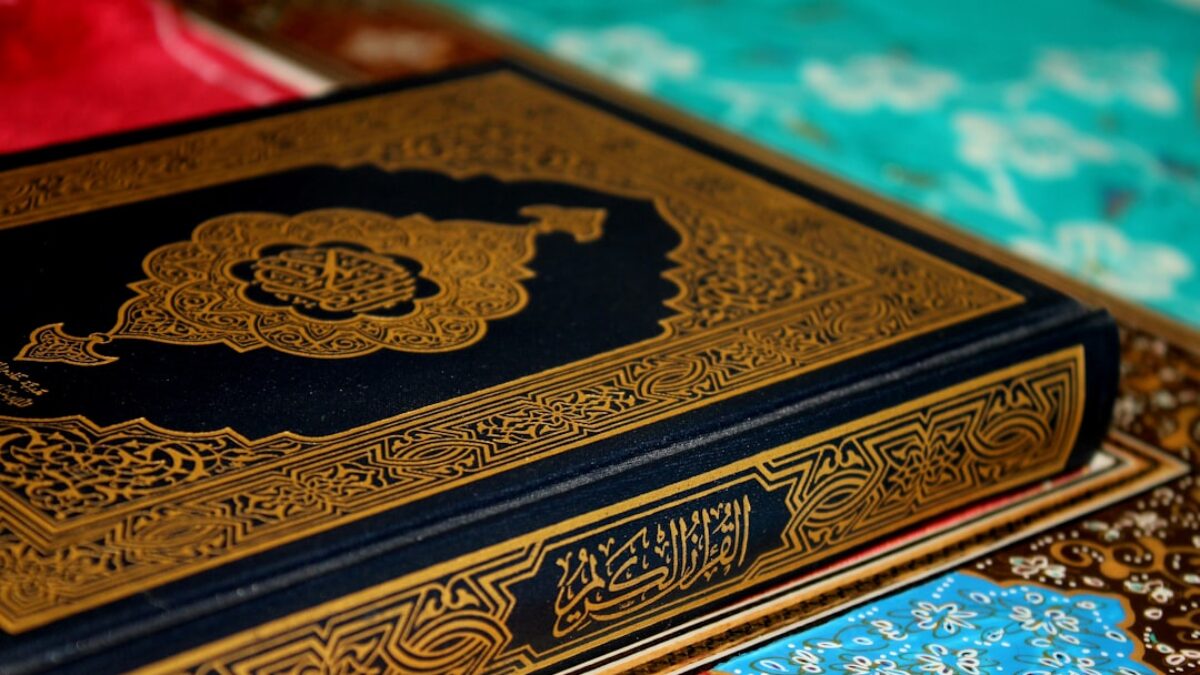The 25 prophets mentioned in the Qur’an are not merely historical figures; they are living blueprints for navigating life with unshakable faith, endless patience, and a constant awareness of divine guidance. Their biographies—often compressed into a few vivid verses—contain oceans of wisdom that transcend time, culture, and geography. Whether you are seeking spiritual motivation, ethical direction, or practical resilience, the stories below offer something profoundly relevant to the modern reader.
Understanding the 25 Prophets in Islam
Islam teaches that Allah sent prophets to every nation throughout history, reminding humanity of its purpose: to worship the One God and uphold justice. The Qur’an names twenty-five of these prophets explicitly, from Adam to Muhammad (peace be upon them all). While their contexts differed—ranging from ancient Mesopotamia to the Arabian Peninsula—their core mission remained identical: to call people to tawhid (monotheism) and model righteous character.
Chronological Overview
- Adam – The first human and prophet, teaching repentance.
- Idris (Enoch) – Pioneer of writing and astronomy, emphasizing knowledge.
- Nuh (Noah) – Symbol of steadfastness during 950 years of preaching.
- Hud – Envoy to the people of ‘Ad, warning against arrogance.
- Salih – Messenger to Thamud, advocating ethical use of resources.
- Lut (Lot) – Champion of social morality.
- Ibrahim (Abraham) – Icon of sacrifice and monotheistic legacy.
- Ismail (Ishmael) – Model of submission and service.
- Ishaq (Isaac) – Continued Abrahamic teachings with patience.
- Yaqub (Jacob) – Exemplar of parental guidance.
- Yusuf (Joseph) – Masterclass in dignified resilience.
- Shu‘aib – Advocate for fair trade and economic justice.
- Ayyub (Job) – Patience personified through severe trials.
- Dhul-Kifl – Guardian of promises and spiritual perseverance.
- Musa (Moses) – Liberator confronting tyranny.
- Harun (Aaron) – Supporter of leadership and unity.
- Dawud (David) – Ruler who combined justice with worship.
- Sulayman (Solomon) – King who governed with divine wisdom.
- Ilyas (Elijah) – Defier of idolatry and environmental steward.
- Alyasa (Elisha) – Healer and social reformer.
- Yunus (Jonah) – Teacher in the belly of the whale about sincere repentance.
- Zakariya (Zechariah) – Supplicant for offspring in old age.
- Yahya (John the Baptist) – Purifier of hearts and herald of change.
- Isa (Jesus) – Miracle-worker promoting compassion.
- Muhammad – Seal of the prophets, integrating all prior lessons.
Key Components of Their Stories
1. Faith in the Unseen
Each prophet faced situations where success or safety seemed impossible. Ibrahim walked into a blazing fire, Musa approached the Red Sea with Pharaoh’s army behind him, and Muhammad stood in the cave of Thawr trusting that Allah’s help was near. Their unwavering yaqin (certainty) teaches that faith precedes miracles.
2. Patience Under Trial
- Ayyub lost wealth, health, and family yet praised Allah without complaint.
- Yusuf endured betrayal, slavery, and imprisonment before becoming Egypt’s treasurer.
- Nuh preached for nearly a millennium, ridiculed daily.
These narratives remind us that patience is not passive waiting but active endurance rooted in trust.
3. Divine Guidance as a Compass
Every prophet received wahy (revelation) tailored to their community’s needs. Shu‘aib was guided to focus on economic ethics; Lut on sexual morality. The takeaway: guidance is contextual, but its essence is universal.
Benefits and Importance
Spiritual Upliftment
Revisiting these stories fosters taqwa (God-consciousness) by reminding us that greatness is measured by obedience, not worldly metrics.
Moral Calibration
By observing prophetic reactions—Yusuf’s refusal of seduction, Yunus’s immediate repentance—we receive clear templates for ethical decision-making.
Resilience Training
Modern psychology confirms the power of narrative therapy. Embedding these stories into daily reflection equips believers to reframe personal setbacks as spiritual opportunities.
Practical Applications
1. Daily Reflection Routine
- Morning Intention (5 minutes): Read a short prophetic story from a reliable seerah or qasas al-anbiya compilation.
- Key-Word Journaling: Note one virtue (e.g., patience) and one action step (e.g., respond calmly to criticism).
- Evening Evaluation: Record how the action step was implemented and areas for growth.
2. Family Story Night
Transform Friday evenings into interactive storytelling sessions. Assign each family member a prophet, prepare a 3-minute skit, and conclude with a 30-second takeaway. This builds Islamic identity in an engaging, memorable format.
3. Workplace Ethics Workshops
Use the example of Shu‘aib to frame discussions on honest business. Create role-play scenarios involving price manipulation, bribery, or environmental waste, then contrast them with Shu‘aib’s statement: “Give full measure and weight in justice.” (Qur’an 7:85)
4. Crisis Support Circles
When a friend faces illness, share the story of Ayyub. Form a small group that reads Qur’anic verses (38:41-44) and makes collective dua for patience and healing. Studies show communal prayer reduces stress and increases perceived support.
Comparing Core Lessons
| Prophet | Primary Trial | Virtue Highlighted | Modern Application |
|---|---|---|---|
| Ibrahim | Command to sacrifice Ismail | Submission to Divine Will | Letting go of career or relationships that conflict with faith |
| Yusuf | False accusation of harassment | Purity and Strategic Planning | Navigating workplace politics with integrity |
| Musa | Confronting Pharaoh | Courage against Oppression | Speaking out against systemic injustice |
| Maryam (Mother of Isa) | Societal stigma of a miraculous birth | Trust in Allah’s Plan | Maintaining dignity under social media scrutiny |
Frequently Asked Questions
What is the difference between a prophet (nabi) and a messenger (rasul)?
A nabi is inspired by Allah with revelation, while a rasul is a prophet sent to a specific community with a new scripture or legal dispensation. Every messenger is a prophet, but not every prophet is a messenger. For example, Harun was a prophet assisting his brother Musa, the messenger.
Are the 25 prophets the only ones Islam recognizes?
No. The Qur’an states: “And We certainly sent into every nation a messenger.” (16:36) Thus, thousands of unnamed prophets existed. The 25 are simply those explicitly named in the Qur’an.
How can non-Arabic speakers access authentic prophetic stories?
Start with reputable translations like Tafsir Ibn Kathir (abridged) or “Stories of the Prophets” by Ibn Kathir (Darussalam edition). Complement with audio lectures by scholars such as Nouman Ali Khan or Yasir Qadhi to reinforce pronunciation and context.
Why do some prophet names differ from biblical versions?
Arabic and Hebrew share Semitic roots, leading to linguistic variations. Yusuf vs. Joseph, Musa vs. Moses, Isa vs. Jesus—each reflects natural phonetic shifts across cultures while preserving the same individual.
What is the role of women prophets in Islam?
While the Qur’an does not explicitly label any woman as a nabiyya (female prophet), it highlights women such as Maryam and Asiyah who received wahi (divine inspiration). Scholars debate whether wahi to women constitutes prophethood, but all agree on their elevated spiritual status.
How do these stories align with modern science?
Islamic theology treats prophetic miracles as divine interventions, not scientific phenomena. Thus, Nuh’s flood or Yunus surviving in the whale are signs (ayat) that transcend natural law and affirm God’s omnipotence rather than conflict with empirical science.
Can children benefit from learning these stories?
Absolutely. Cognitive research shows that narrative-based moral education improves empathy and ethical reasoning. Simplify language, use colorful storyboards, and ask open-ended questions: “What would you do if you were Prophet Ibrahim?” This encourages critical thinking and emotional engagement.
Conclusion
The 25 named prophets in the Qur’an offer more than historical anecdotes; they provide a living curriculum for human excellence. Their journeys teach us that faith is not the absence of fear but the presence of trust, that patience is an active force transforming trials into triumph, and that divine guidance is always accessible to the sincere seeker. By embedding these stories into daily routines, family rituals, and community programs, we do not merely remember the past—we re-enact timeless principles that elevate our present and shape a hopeful future. May our hearts become fertile soil where the seeds of prophetic wisdom grow into resilient trees of iman (faith), sabr (patience), and huda (guidance).


Post Comment